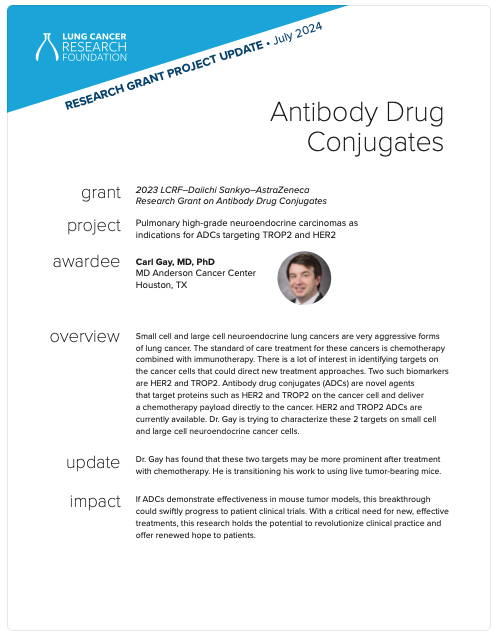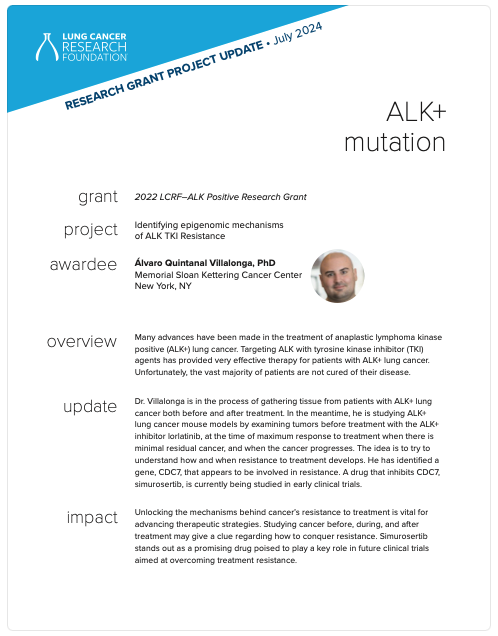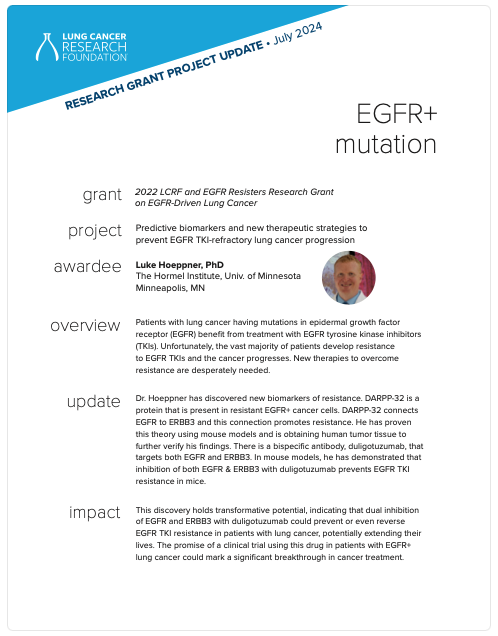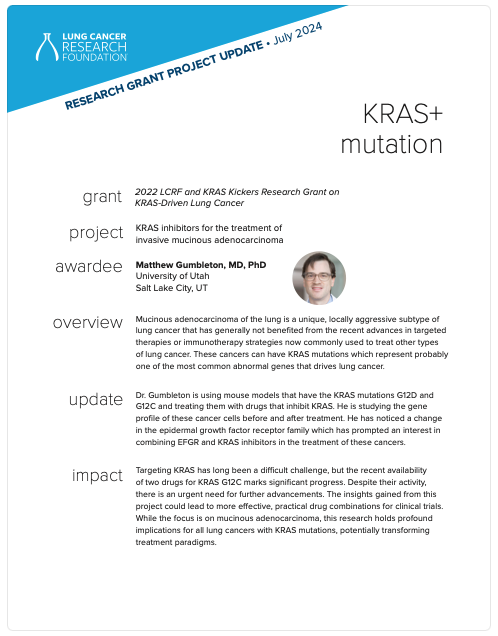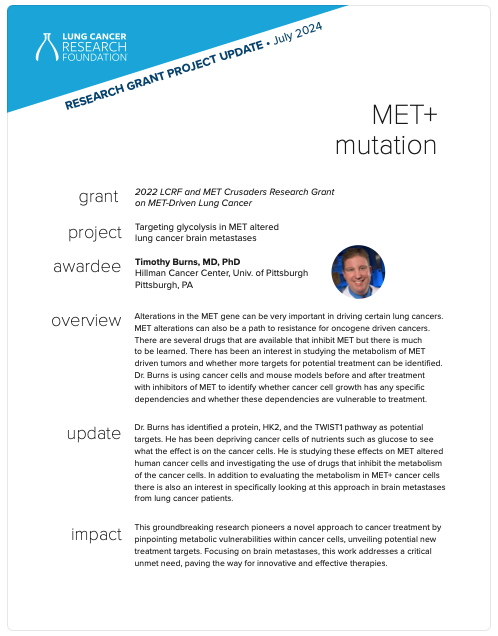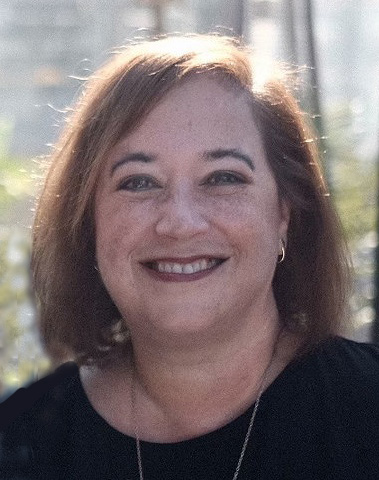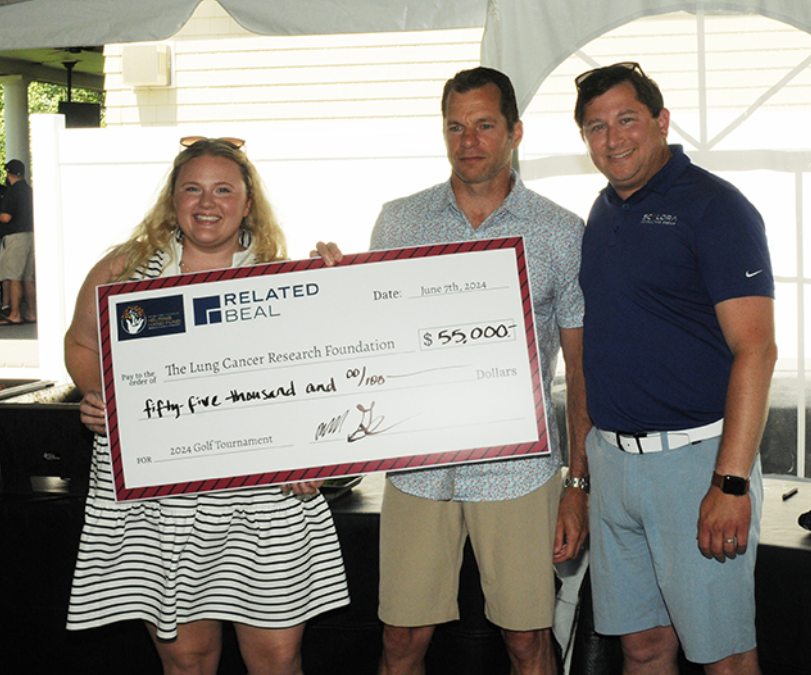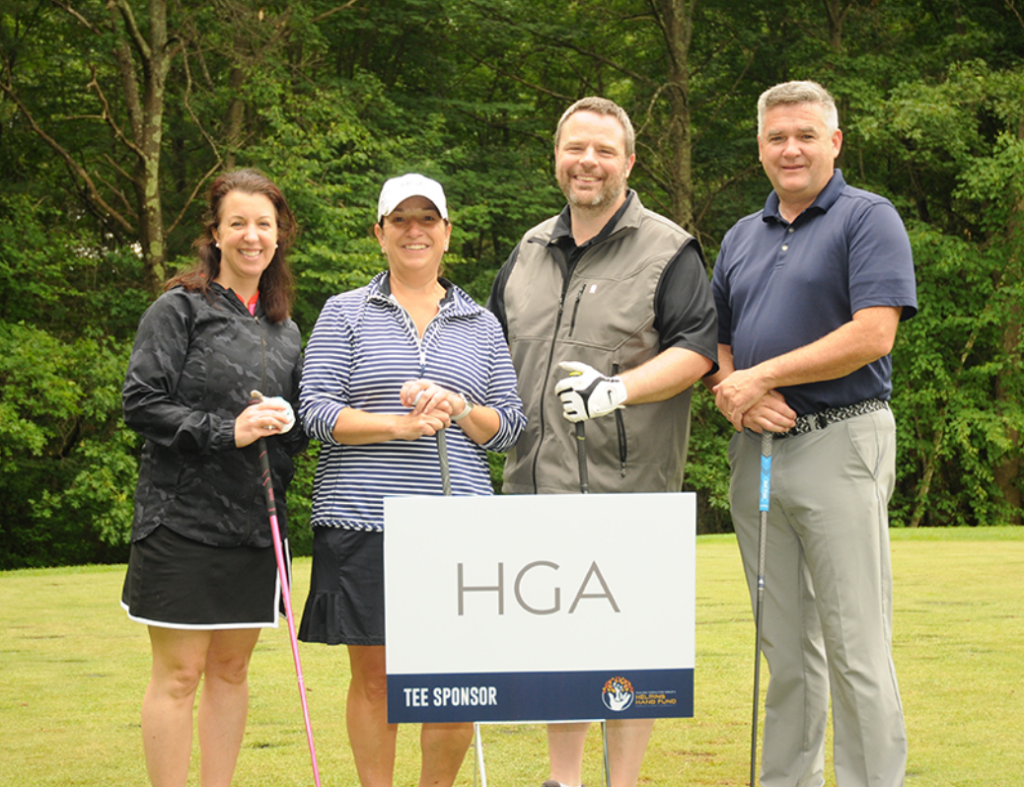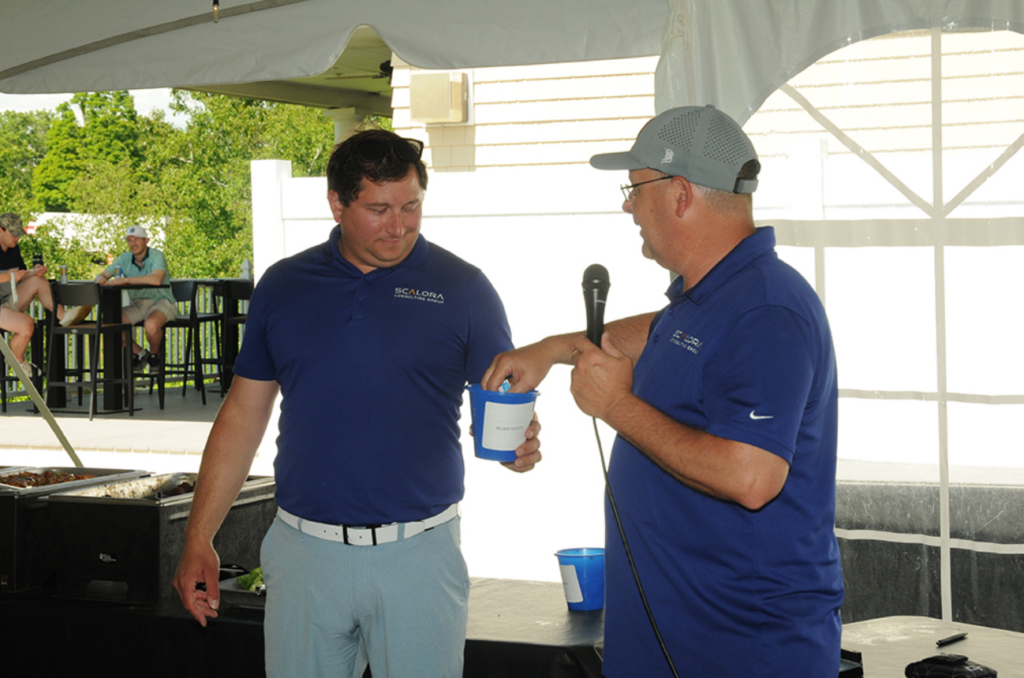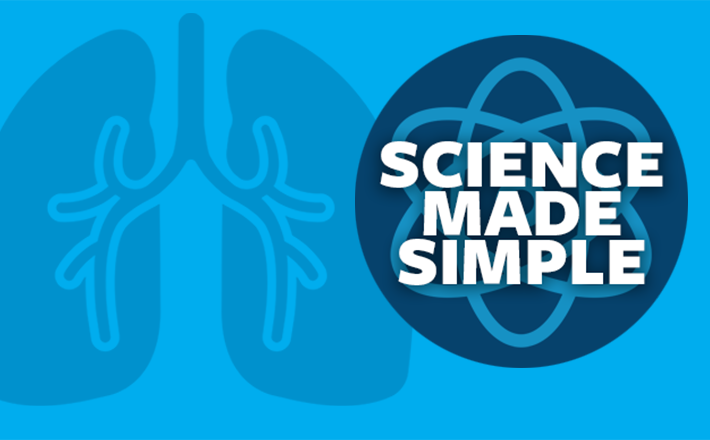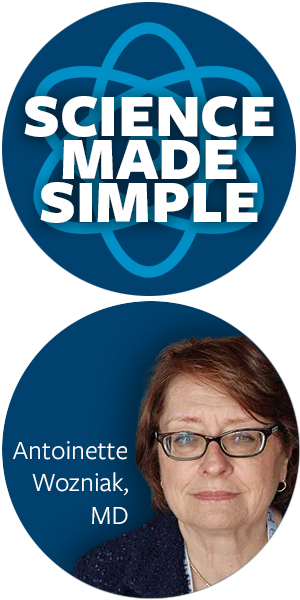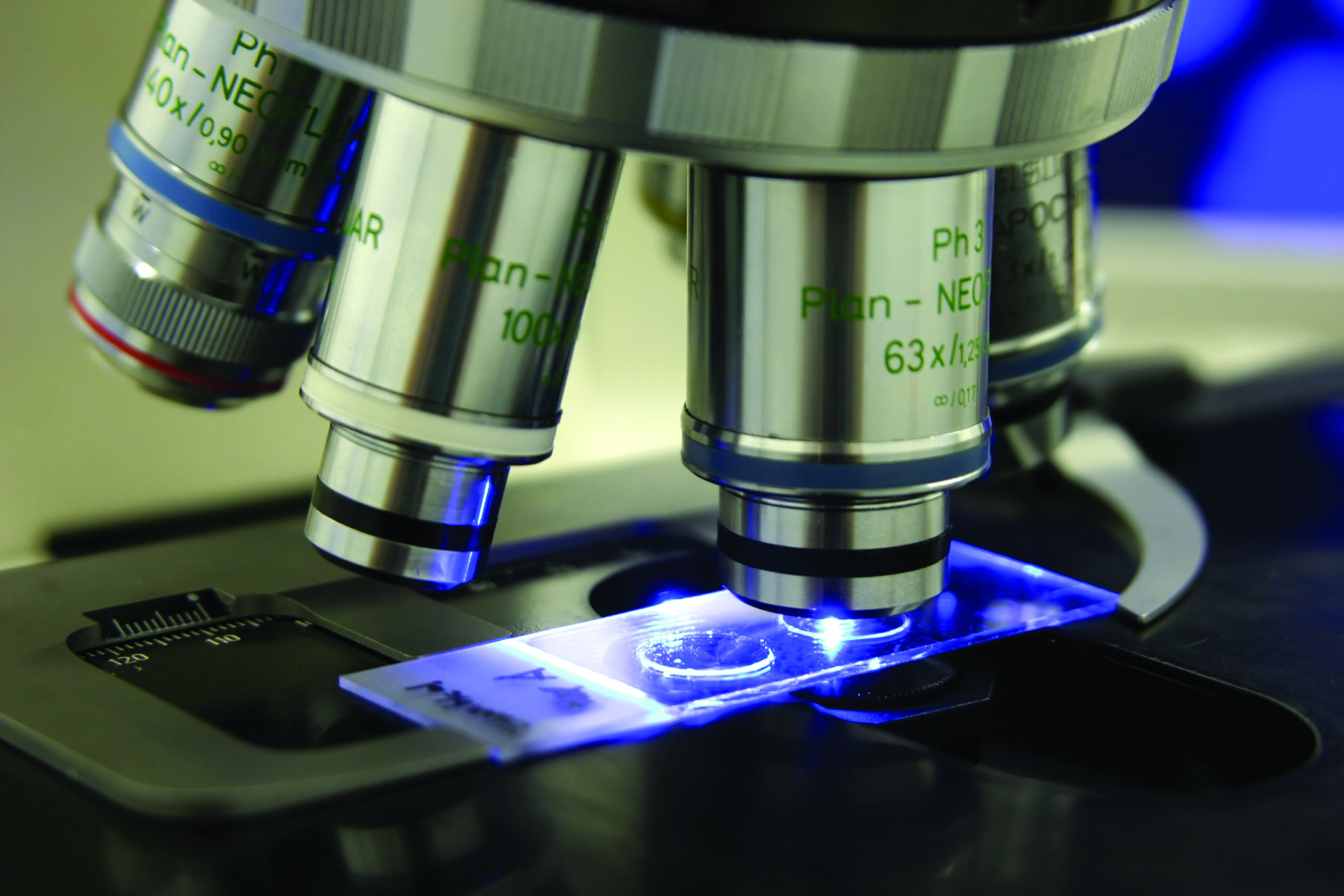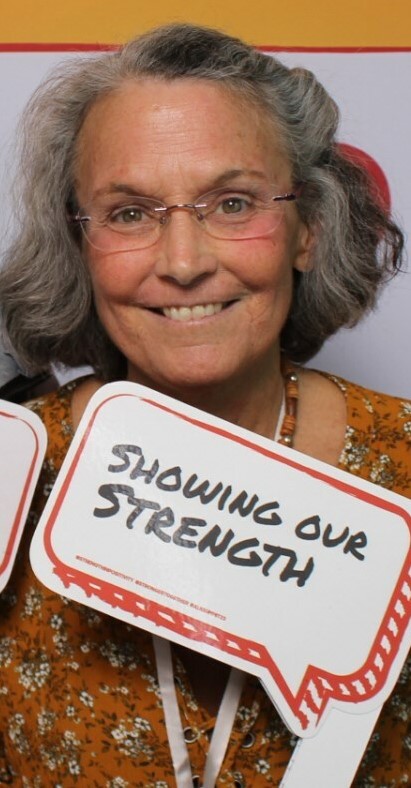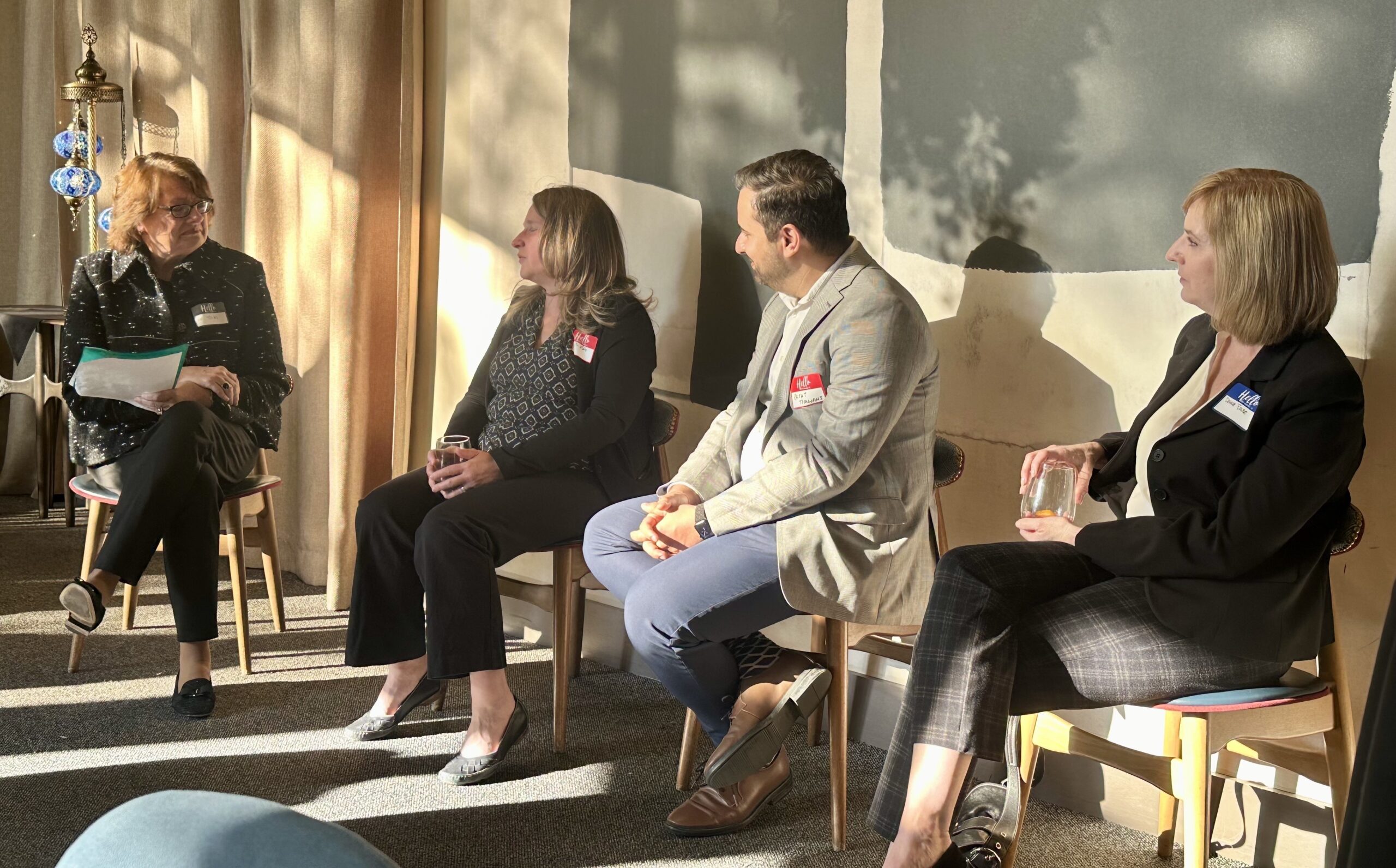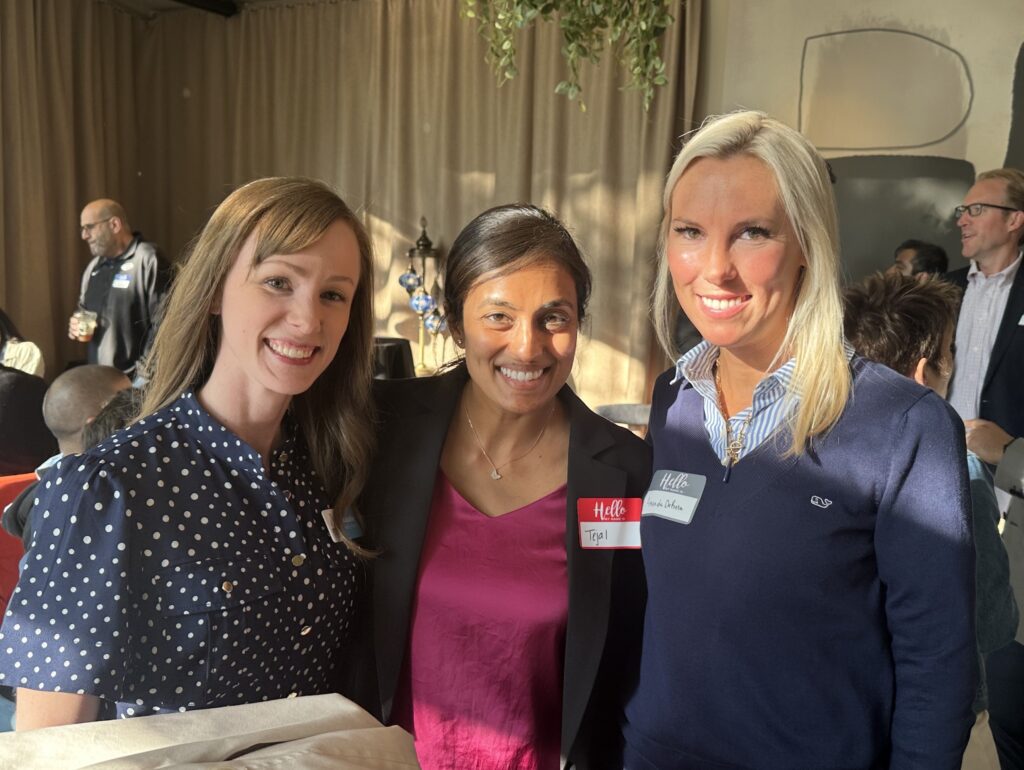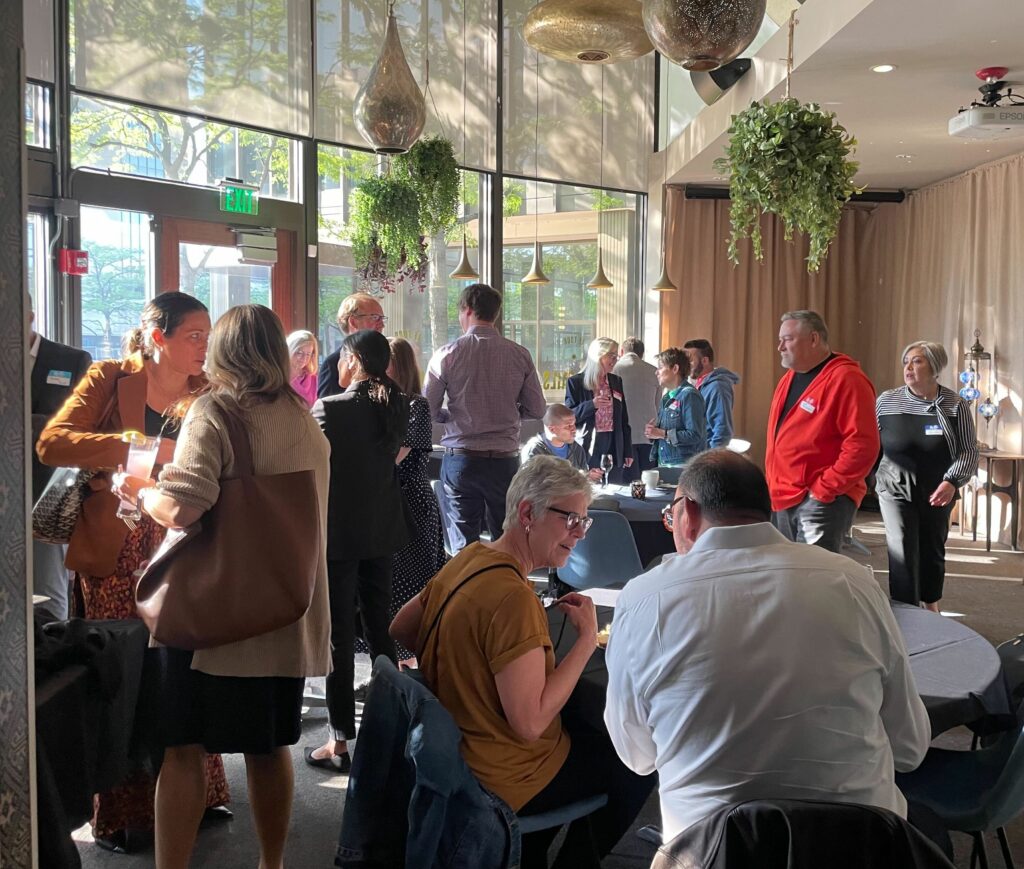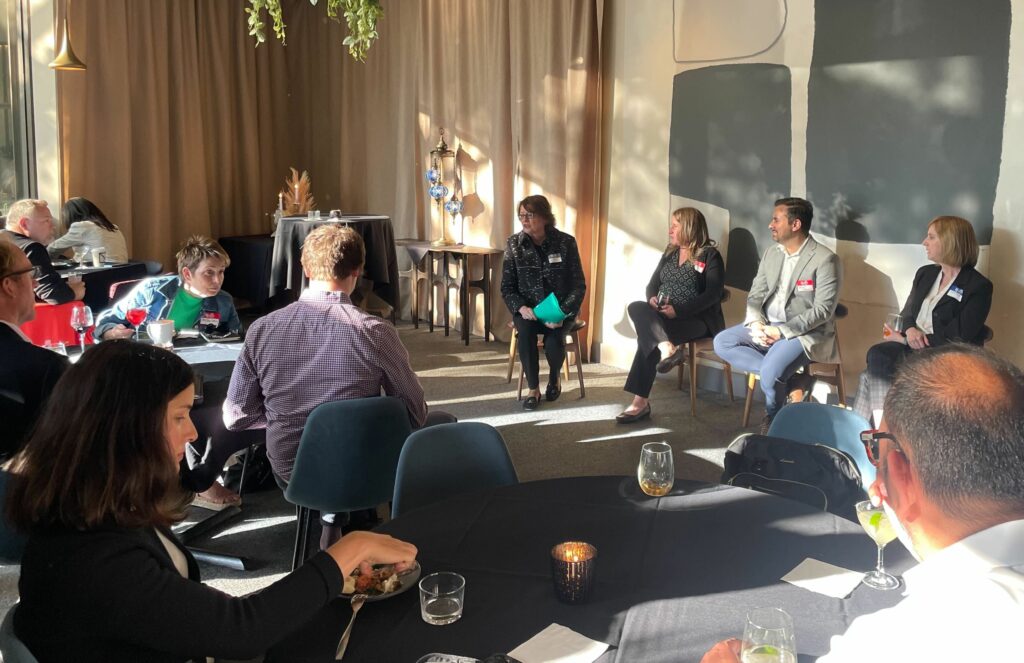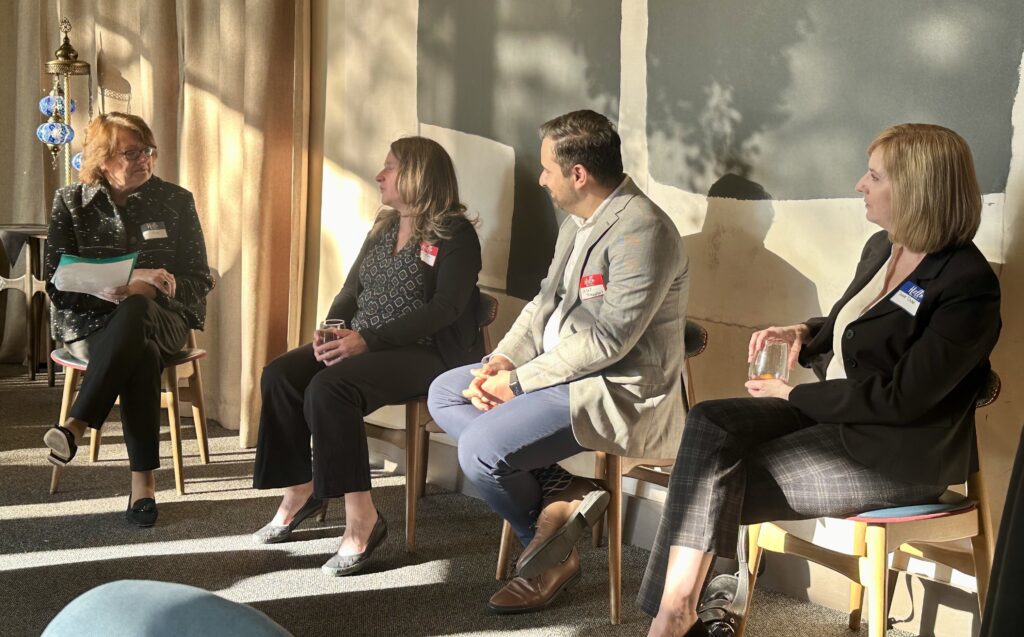Kathryn A. O’Donnell, PhD to lead Scientific Advisory Board
NEW YORK, NY (July 1, 2024) – The Lung Cancer Research Foundation (LCRF) is pleased to announce the appointment of Kathryn A. O’Donnell, PhD as its new Scientific Advisory Board (SAB) chair, effective July 1, 2024. Dr. O’Donnell succeeds Katerina Politi, PhD, who has served as chair of LCRF’s SAB since 2019.
Kathryn (Kate) O’Donnell, PhD, is an Associate Professor in the Department of Molecular Biology at UT Southwestern Medical Center and co-leader of the Development and Cancer Program in the Harold C. Simmons Comprehensive Cancer Center. She received her B.S. in genetics from Cornell University and her PhD in human genetics from Johns Hopkins School of Medicine, working with Chi Dang on the functions of the MYC oncogene, one of the most important drivers of human malignancy. Following graduate school, she joined Jef Boeke’s laboratory at Johns Hopkins and developed innovative approaches to identify genes that contribute to cancer and may represent new therapeutic targets.
In 2011, Kate was recruited to UT Southwestern Medical Center as an Assistant professor in the Department of Molecular Biology and a Cancer Prevention and Research Institute of Texas (CPRIT) Scholar. Since establishing her independent laboratory, Dr. O’Donnell has made important contributions to our understanding of cancer initiation and progression. She has discovered new cancer genes, including oncogenic cell surface proteins that may be targetable with therapeutic antibodies. Her current work is focused on understanding the mechanisms that contribute to lung tumor development, the regulation of immune checkpoint pathways, and applying insights from these studies towards the development of new therapies for lung cancer. Dr. O’Donnell has served as a member of LCRF’s SAB since 2022.
“I am thrilled and honored to chair LCRF’s Scientific Advisory Board and I look forward to working with my colleagues on the Scientific Advisory Board, the Board of Directors, and the amazing staff and leadership at LCRF to continue funding exceptional lung cancer research,” said O’Donnell.
“We are excited for Dr. O’Donnell to take the reins of the SAB from Dr. Politi,” remarked Aubrey Rhodes, LCRF’s executive director. “Dr. Politi leaves big shoes to fill. Her leadership has made LCRF’s research program what it is today – funding innovative research with the greatest potential to address unmet need and improve outcomes for the lung cancer community. Her efforts were integral in developing several multi-year, multi-million-dollar research partnerships that have accelerated the pace of lung cancer research. Under her leadership, the SAB developed a long-term vision through strategic planning and its research roadmap, which guides the foundation’s research investments. She has also strived to increase the diversity of the SAB. We’re grateful for her service and are especially thankful that she will remain on our SAB and Board of Directors, assuring a smooth transition for Dr. O’Donnell into her new role.”
Katerina Politi, PhD, Professor of Pathology and Internal Medicine at Yale School of Medicine, has led LCRF’s SAB for five years, overseeing the funding of more than $11 million in lung cancer research grants as well as the development of LCRF’s Research Roadmap and the founding of the organization’s Research Advocates volunteer group. She is a celebrated researcher herself, and a past beneficiary of LCRF’s early investigator grant awards, which provide her a unique perspective on both the process and the impact of early funding on a scientist’s career. Dr. Politi continues as a mentor to other researchers and a partner to LCRF’s board and staff.
“Dr. O’Donnell is an excellent scientist and will continue to build upon LCRF’s legacy of supporting lung cancer researchers and novel, innovative research ideas,” said Dr. Politi. “I’m confident that she will lead the SAB to achieve LCRF’s research priorities and improve outcomes for people with lung cancer.”
###
About the Lung Cancer Research Foundation (LCRF)
The Lung Cancer Research Foundation® (LCRF) is the leading nonprofit organization focused on funding innovative, high-reward research with the potential to extend survival and improve quality of life for people with lung cancer. LCRF’s mission is to improve lung cancer outcomes by funding research for the prevention, diagnosis, treatment, and cure of lung cancer. To date, LCRF has funded 419 research grants, totaling nearly $44 million, the highest amount provided by a nonprofit organization dedicated to funding lung cancer research. For more information, visit LCRF.org.
Contact:
Sheila Sullivan
Sr. Director, Marketing & Communications, LCRF
ssullivan@lcrf.org

